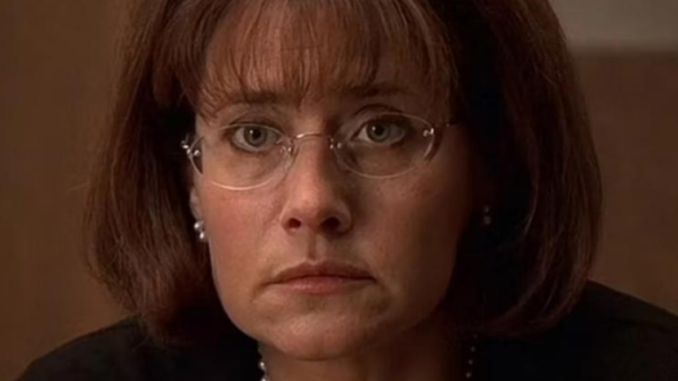
Introduction: A Legacy of Controversy
The Sopranos, HBO’s groundbreaking crime drama, redefined television storytelling when it first premiered in 1999. With its complex characters, intricate plots, and moral ambiguity, the series became a cultural phenomenon, captivating audiences for six seasons. However, the show’s finale, which aired on June 10, 2007, remains one of the most debated conclusions in television history. In a recent interview, a prominent star from the show expressed their dissatisfaction with the final scene, stating, “I was annoyed.” This revelation has reignited discussions about the show’s legacy and the impact of its controversial ending.
The Build-Up to the Finale
As the series progressed, viewers became deeply invested in the life of Tony Soprano, played by James Gandolfini, a mob boss juggling the complexities of his criminal empire and family life. The show was praised for its realistic portrayal of the mafia and its exploration of psychological themes. As the final season approached, anticipation reached a fever pitch, with fans speculating how the story of Tony and his family would conclude.
Throughout the final episodes, tensions escalated, leading to confrontations with rival gangs and the FBI. As the stakes grew higher, so did the audience’s expectations for a dramatic and satisfying conclusion. However, what unfolded in the series finale was far from conventional.
The Infamous Final Scene
The final moments of The Sopranos are etched into the minds of viewers. The scene takes place in a diner, where Tony, his son A.J., and daughter Meadow are gathered. As “Don’t Stop Believin’” by Journey plays in the background, viewers watch as various patrons enter the diner. The atmosphere is tense, leaving audiences uncertain about what might happen next.
As the scene builds to a climax, the screen abruptly cuts to black, leaving viewers in shock and confusion. The ambiguity of the ending has sparked countless theories and interpretations. Some viewers hailed it as a brilliant artistic choice, symbolizing the unpredictability of life, while others felt cheated by the lack of closure.
The Star’s Perspective
In the recent interview, the actor voiced their frustration with the finale, stating, “I was annoyed.” They expressed disappointment with the decision to leave Tony’s fate unresolved, feeling that the audience deserved a more definitive conclusion. This sentiment resonates with many fans who invested years into following the characters’ journeys and hoped for a satisfying resolution.
The actor’s criticism raises questions about the nature of storytelling in television. While open-ended conclusions can provoke thought and discussion, they can also alienate viewers seeking closure. The Sopranos was celebrated for its complexity, but the finale’s ambiguity left some fans feeling dissatisfied.
The Artistic Intent
David Chase, the creator of The Sopranos, has defended the ending, suggesting that it was intentional to reflect the unpredictability of life. In interviews, he has mentioned that he wanted to leave audiences pondering Tony’s fate, much like the uncertainty that often accompanies real-life situations. Chase’s artistic vision challenged traditional storytelling norms, inviting viewers to engage with the narrative on a deeper level.
However, this approach can be polarizing. While some viewers appreciate the ambiguity, others feel that it undermines the emotional investment they made in the characters. The contrast between artistic intent and audience expectation highlights the complexities of television as a medium and the varying interpretations of storytelling.
The Impact on Television
The Sopranos’ finale has had a lasting impact on television storytelling. Since its airing, numerous shows have experimented with ambiguous endings, often provoking similar debates among audiences. Series like Lost, The Leftovers, and even Game of Thrones have faced scrutiny for their conclusions, with fans divided over whether they lived up to the narrative build-up.
This trend suggests a broader shift in how audiences engage with television. As viewers become more discerning, they seek not just entertainment but also meaningful conclusions that reflect the intricate storytelling they have come to expect. The Sopranos has paved the way for this evolution, leaving an indelible mark on the television landscape.
Conclusion: A Lasting Debate
The Sopranos remains a hallmark of television history, and its final scene continues to spark discussions about storytelling, character development, and audience expectations. The recent comments from one of its stars highlight the enduring divide over the series’ conclusion, as viewers grapple with their interpretations of the ambiguous ending. Whether one views it as a brilliant artistic choice or an unsatisfying conclusion, the legacy of The Sopranos endures, reminding us of the complexities of life and the narratives we create.
As fans continue to analyze and debate the series, it is evident that The Sopranos has left an indelible mark on the television landscape, shaping the way stories are told and experienced. The tension between artistic intent and audience satisfaction remains a vital conversation in the realm of television, ensuring that The Sopranos will be remembered for years to come. Ultimately, the enduring legacy of the series lies not just in its plot but in its ability to provoke thought and discussion, inviting viewers to explore the depths of storytelling in ways that transcend traditional boundaries.